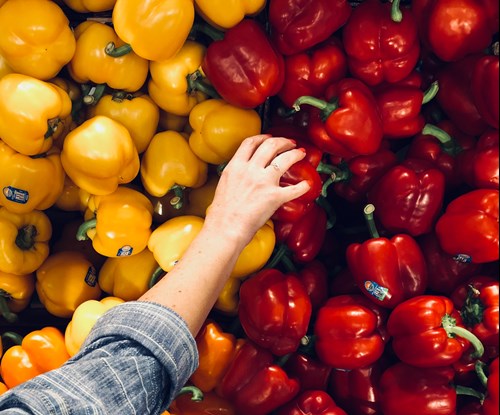The Best Foods For Your Eyes
10 September 2019

Although it’s inevitable that your eyesight may start to strain as you age, it is still important to try and maintain a healthy lifestyle to reduce the risk of issues surrounding your eyes, particularly sight related diseases.
There has been a lot of research relating to the best vitamins and supplements for eyesight. It’s been said that omega-3 fatty acids, vitamin C and E, zeaxanthin and lutein are vital for good eye health.
Dark Leafy Greens
This includes foods such as spinach, kale and collard greens that are a must have in your diet! These greens are extremely rich in vitamin C and E. These lower your risk of eye diseases, such as age related macular degeneration and cataracts. In the UK, it’s not something that is incorporated in meals enough, so it’s certainly something to bear in mind when you’re planning what to have for the week!

Red Pepper
Did you know that raw red pepper gives you a high amount of vitamin C per calorie? These are great for the blood vessels in your eyes and research has found that the development of cataracts are significantly reduced. Unfortunately heat will break down the vital vitamin C that you need for good eye health, so make sure it’s raw - you can also find this in foods like cauliflower, strawberries and papayas.
Oily Fish
Did you know that the omega-3 fatty acids DHA and EPA are vital for your retinas to work correctly? Salmon and tuna are great for these. This is also great to reduce your risk of age related macular degeneration and glaucoma. A link has been made between omega-3 fatty acids and dry eyes, so reduce your risk by including these in your diet.
Lean Meats
Did you know that zinc encourages vitamin A from your liver to your retinas, where it’s used to produce the melanin pigment? Oysters are a great source of zinc because they have more in them per serving than any other food, however we know that may not be viable for many people! If oysters aren’t your cup of tea, beef, pork and chicken are great sources of zinc.
Eggs
The yolk from an egg also provides zinc, which will aid your body to use the lutein and zeaxanthin - the colours (yellow and orange) blocks blue light from damaging your retina. The pigment in the macula is also boosted because of this.
More Greens!
Vegetables such as brussel sprouts and broccoli are brilliant for a variation of nutrients, like vitamin A, C and E. Antioxidents are incremental for protecting the cells in your eyes - free radicals are preventable, which are molecules that breaks down healthy tissue, of which retinas are especially susceptible.
Sweet Potato
We’re always told that carrots are ideal for vitamin C and healthy eyes, but it’s important to remember that generally, orange coloured fruits and vegetables, such as sweet potato, mangos, apricots and cantaloupe, which are all rich in vitamin A which encourages your eyes’ ability to adjust from light to darkness.
Did you know that one sweet potato has more than half the vitamin C you need in one day?!
Seeds and Nuts
Sunflower seeds and nuts like almonds provides you with a great amount of vitamin E. Studies have suggested that vitamin E is great for decreasing the risk of age related macular degeneration, as well as cataracts. If those aren’t your cup of tea, try hazelnuts and peanut butter which are also great sources of vitamin E.
Back to Blog
